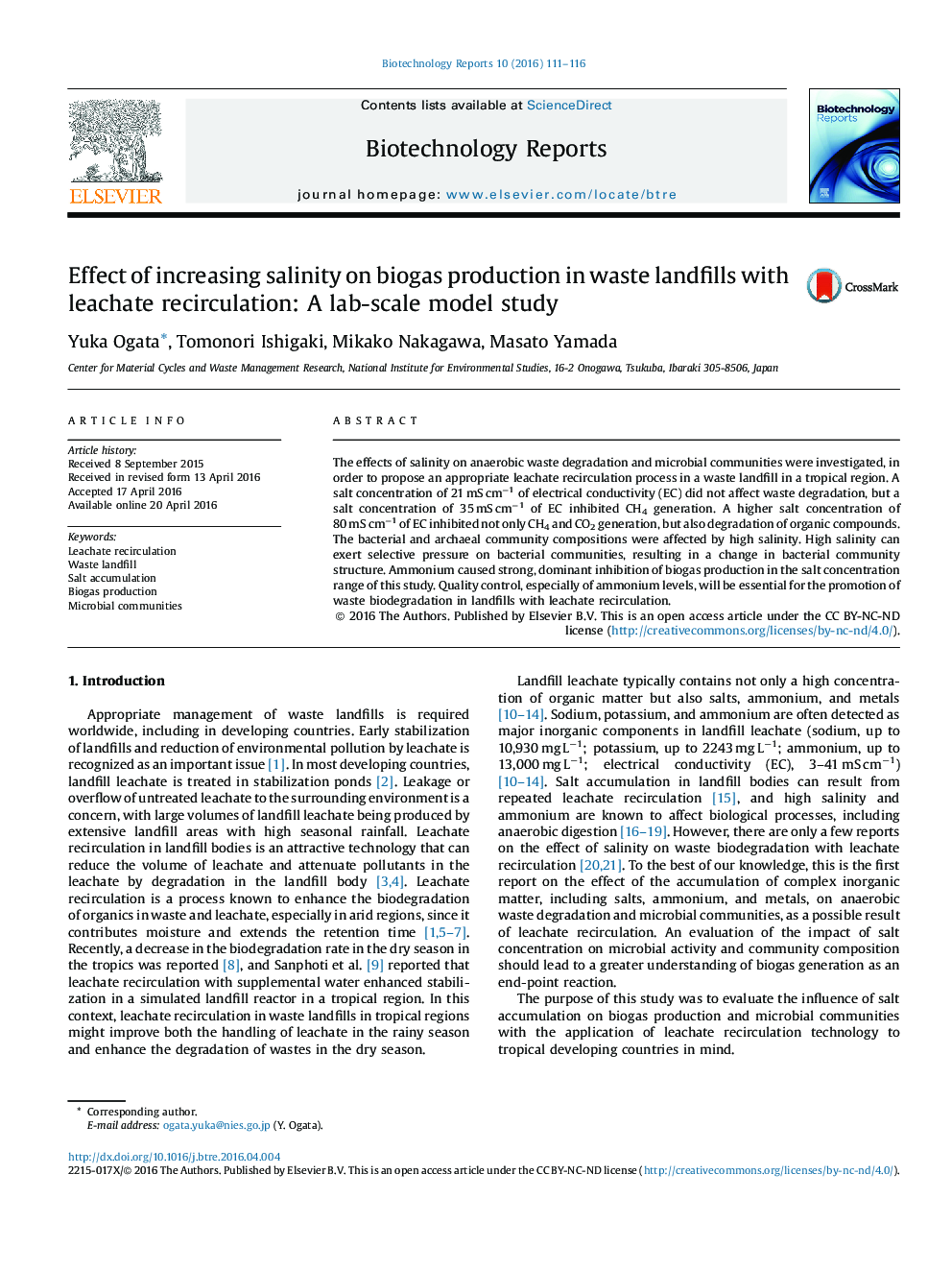| Article ID | Journal | Published Year | Pages | File Type |
|---|---|---|---|---|
| 870570 | Biotechnology Reports | 2016 | 6 Pages |
•Effects of accumulation of complex salts with leachate recirculation on anaerobic waste degradation and microbial communities were evaluated.•A high salt concentration, 80 mS cm−1 EC, inhibited not only CH4 and CO2 generation, but also the degradation of organic compounds.•High salinity exerted selective pressure on bacterial communities, resulting in a change in bacterial community structure.•Concentration of ammonium is a key inhibitor of anaerobic waste degradation in landfills when leachate recirculation.•Quality control, especially of ammonium levels, is essential for the promotion of waste degradation in landfills with leachate recirculation.
The effects of salinity on anaerobic waste degradation and microbial communities were investigated, in order to propose an appropriate leachate recirculation process in a waste landfill in a tropical region. A salt concentration of 21 mS cm−1 of electrical conductivity (EC) did not affect waste degradation, but a salt concentration of 35 mS cm−1 of EC inhibited CH4 generation. A higher salt concentration of 80 mS cm−1 of EC inhibited not only CH4 and CO2 generation, but also degradation of organic compounds. The bacterial and archaeal community compositions were affected by high salinity. High salinity can exert selective pressure on bacterial communities, resulting in a change in bacterial community structure. Ammonium caused strong, dominant inhibition of biogas production in the salt concentration range of this study. Quality control, especially of ammonium levels, will be essential for the promotion of waste biodegradation in landfills with leachate recirculation.
